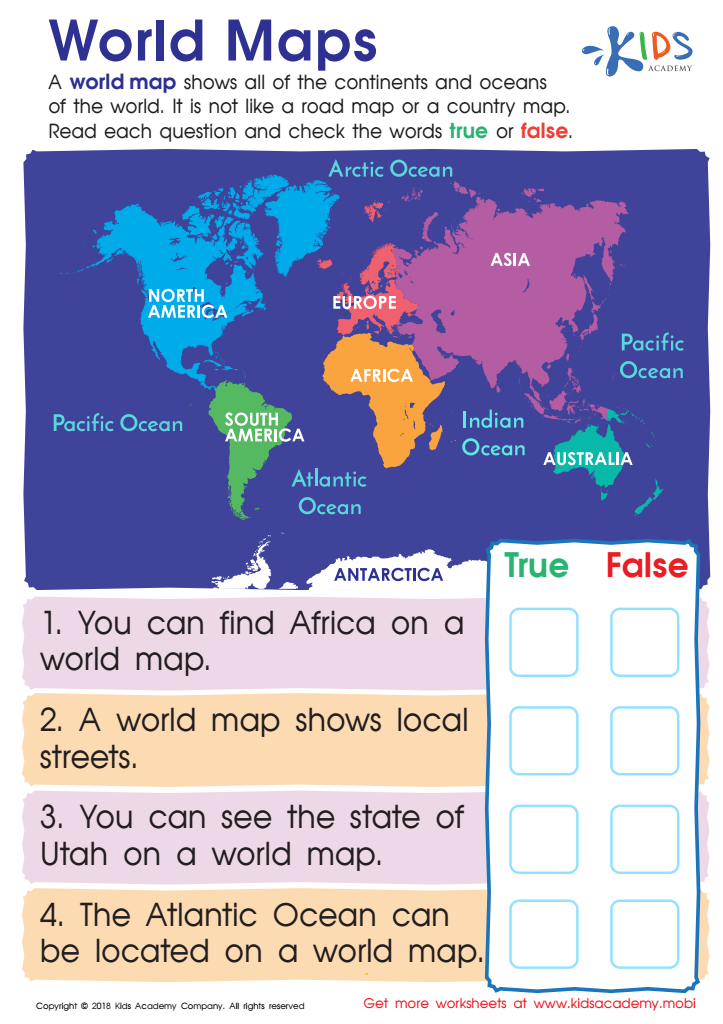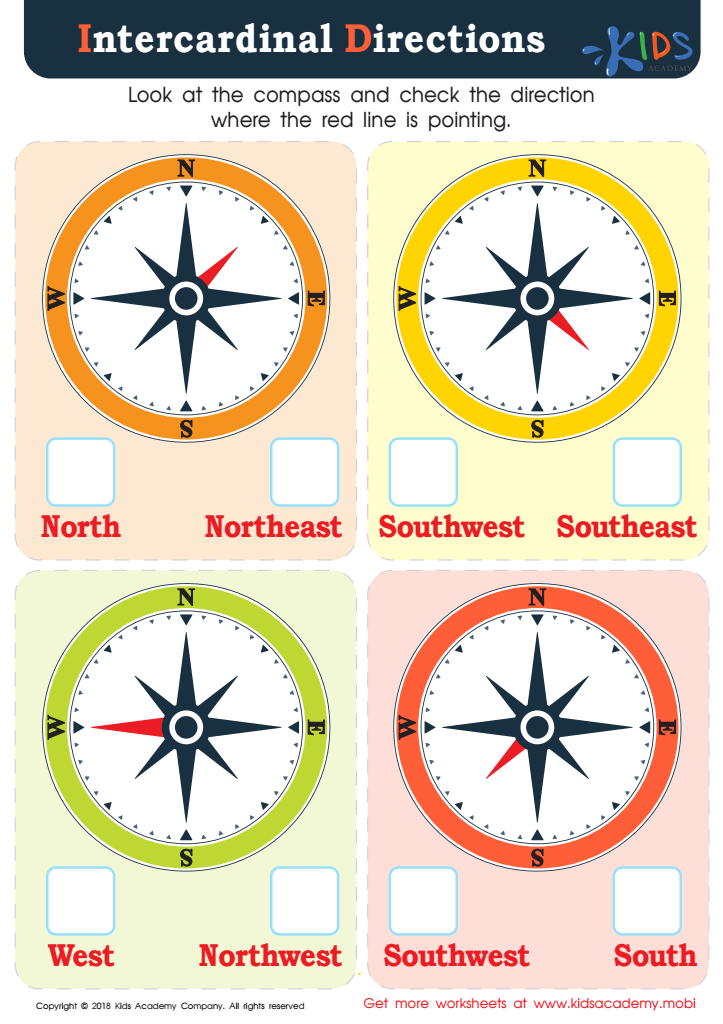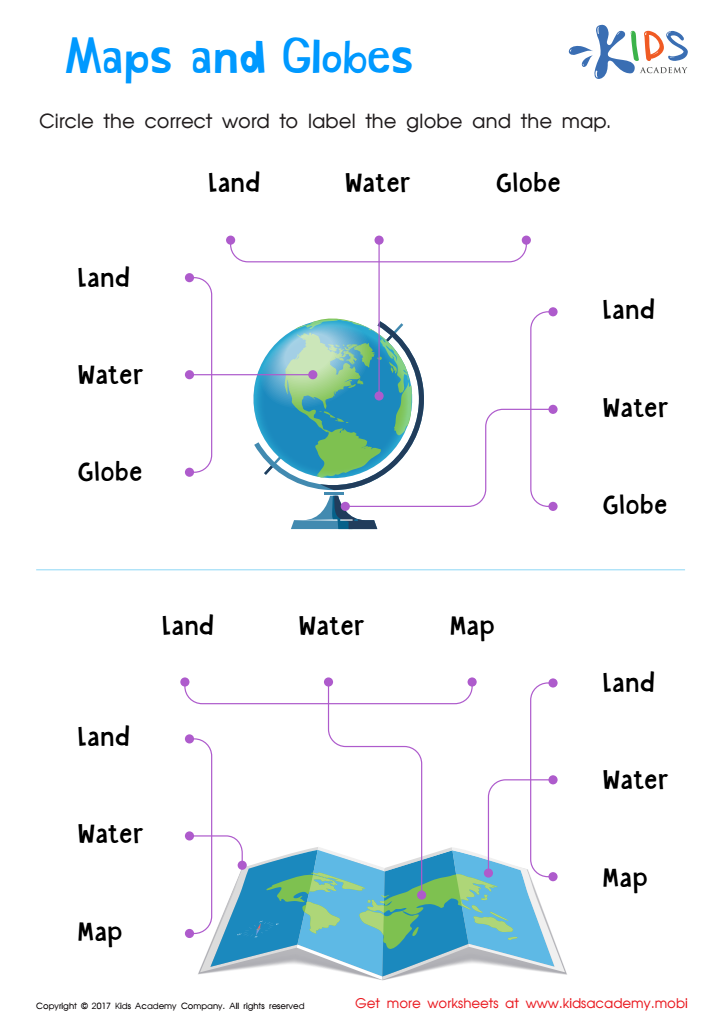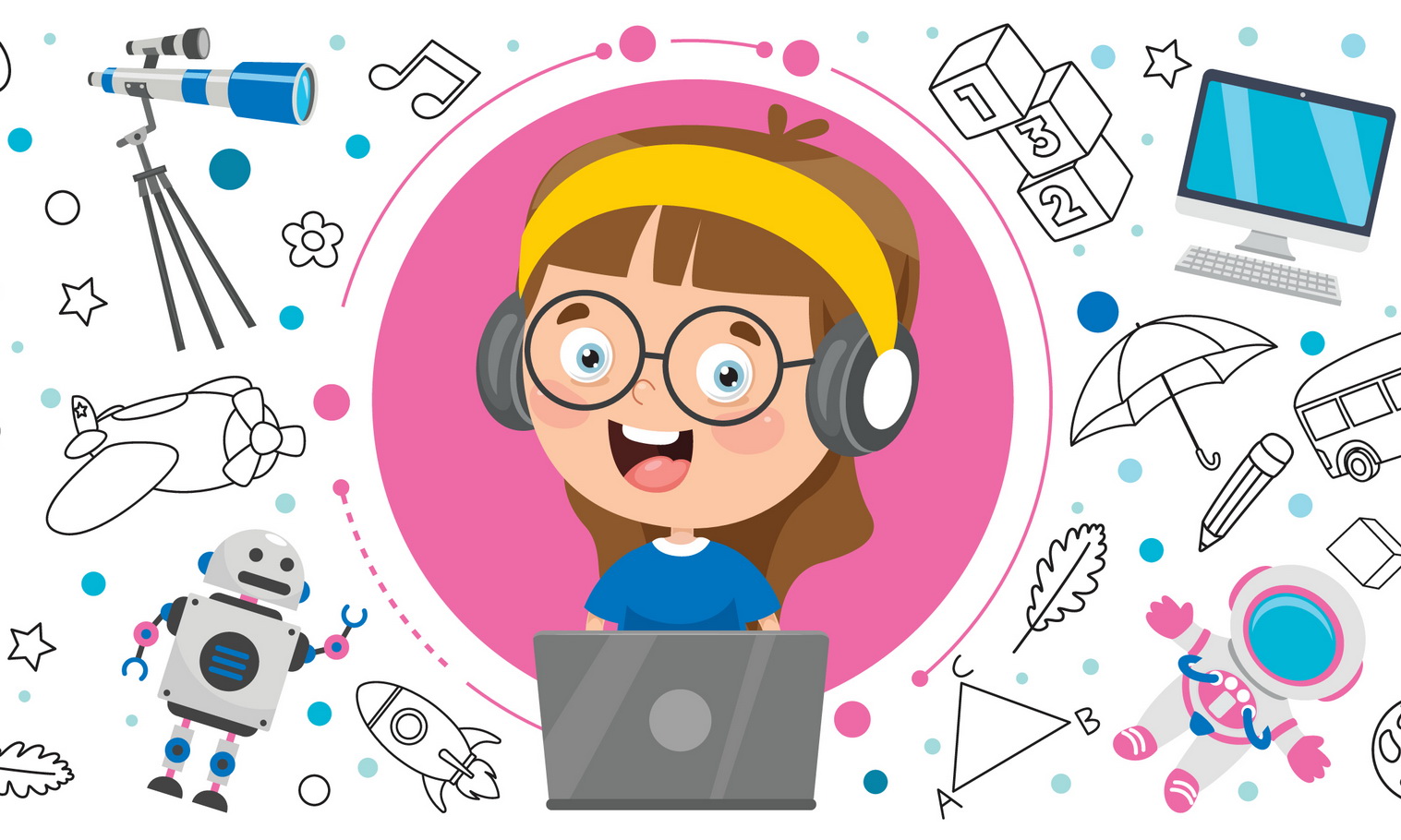Geography skills Normal Worksheets for Ages 6-8
3 filtered results
-
From - To
Explore our engaging Geography Skills Normal Worksheets designed for children aged 6-8! These printable resources are perfect for young learners eager to understand their world. Our worksheets feature fun activities that enhance essential geography skills, such as map reading, discovering continents, recognizing landmarks, and exploring different cultures. Each worksheet is tailored to develop curiosity and critical thinking, making learning enjoyable and interactive. With colorful designs and age-appropriate content, these resources are ideal for home learning or classroom use. Empower your child's geographical awareness and help them journey through the fascinating landscapes of our planet today! Printable, educational, and fun—grab yours now!


World Maps Worksheet


Intercardinal Directions Worksheet
Geography skills are vital for children aged 6-8 as they lay the foundation for understanding the world around them. At this age, children are naturally curious about their environment and the people within it. Teaching geography helps to satisfy this curiosity, fostering a sense of exploration and wonder.
Understanding basic geography helps children develop critical thinking skills by recognizing relationships between places, cultures, and the environment. With maps, globe use, and basic geographical vocabulary, children can learn how to navigate their surroundings, which is essential for developing spatial awareness.
Moreover, geography education enhances cultural understanding and empathy. As children learn about different countries, cultures, and communities, they gain appreciation for diversity and global interconnectedness. This is especially important in today’s multicultural world, as it can help counteract stereotypes and promote respect for differences.
Lastly, geography skills are increasingly relevant in our technologically-driven society. Knowledge of geography supports subjects like history, science, and environmental studies. By cultivating these skills, parents and teachers are equipping students with tools for academic success, informed citizenship, and lifelong learning, setting them up to become more aware, responsible, and engaging members of society.

 Assign to My Students
Assign to My Students



















